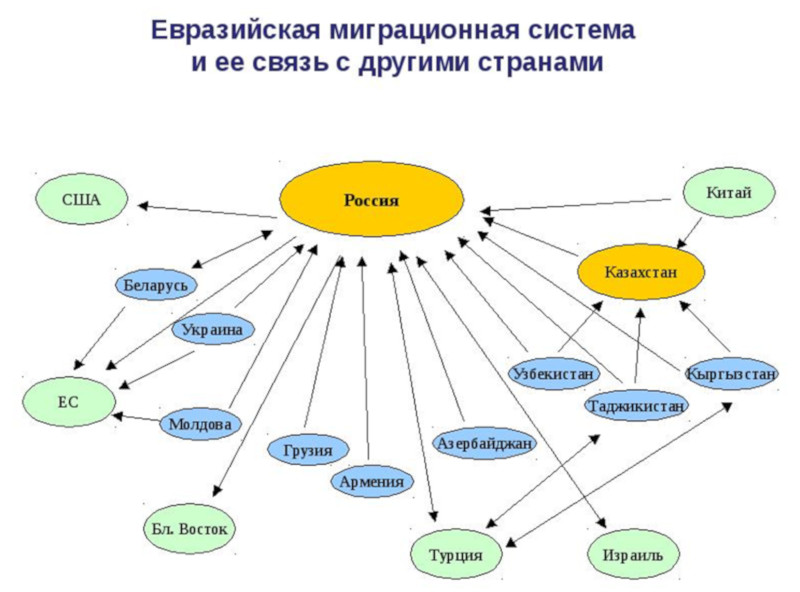
On September 17 as part of the project “EYA Lecture Hall” (EYA – Eurasian Youth Assembly) a seminar on “Migration Processes in Eurasia” was held.
Victoria Ledeneva, Doctor of Social Sciences, Head of the Department of “Ethnodemographic and Integration Processes” of the Institute of socio-political research of the Federal research sociological centre of the Russian Academy of Sciences (ISPR FRSC RAS), adviser to the Head of the Federal Agency for Ethnic Affaires (FAEA), member of the Commission on Migration Issues of the Presidential Council for Interethnic Relations, delivered a lecture for young scientists from the continent.
According to the speaker, today moving from one country to another is not uncommon, but the migration itself is short-term or temporary. The main motive of a migrant worker is the desire to earn money and ensure the wellbeing of himself and his family. This type of migration is voluntary, but it is also necessary to say about forced migration, which is often the only way out for refugees, victims of civil wars and residents of the least favourable territories affected by natural disasters.
Today, labour migration has become the engine of the economy of many developing countries, which are directly dependent on cash flows from fellow citizens working abroad. According to the International organization for migration, the share of international migrants is increasing every year. If in 2017 there were 258 million of them, today there are more than 272 million. Of these, 150 million are labour migrants. According to official statistics for 2019, 7 out of 10 countries with the largest number of labour migrants are located on the Eurasian continent: Germany, France, Great Britain, Spain, Saudi Arabia, the United Arab Emirates and Russia.

Russia is the central link in the Eurasian migration system, a group of post-Soviet countries that are linked by numerous migration flows due to a number of historical, economic, and socio-ethnic factors.
Kazakhstan ranks second after Russia in terms of labour migration, while Belarus ranks second in terms of long-term migration. The largest flows of labour migration to Russia and Kazakhstan are directed from Uzbekistan.
In addition to the former Soviet republics, the Eurasian migration system also has links to countries on the continent such as China, Israel, Turkey, and key actors in the Middle East and the European Union. Recently, educational migration has been rapidly developing, and the most popular among students from post-Soviet countries are the educational programs of China, the EU, and the Persian Gulf countries.
“The common language of interethnic communication and historically close economic, cultural, political and, consequently, migration ties increase opportunities for migration and positively affect the dynamics and intensity of migration exchange between the EAEU member States,” - Victoria Ledeneva is sure.
It should be noted that labour migrants from the countries of the Eurasian Economic Union enjoy certain privileges. For example, in accordance with the Treaty on the EEU, educational documents are recognized without carrying out the appropriate accreditation procedures, and social security is provided for equal with the citizens of the country of employment.
At the end of the lecture, the Doctor of Social Sciences addressed students and postgraduates, young scientists of Eurasia: “We need to study social processes that are constantly changing in our time. A year ago, we did not know that there would be a pandemic or a quarantine, but today we assess migration flows in a completely different way, identify new problems, look for solutions, develop scenarios and forecasts. I encourage young scientists to actively engage in science and study migration processes. How we can further improve our lives, our society, depends on young people. I wish you success, new knowledge and practical solutions!”
As the moderator of the online meeting, co-Chair of the Coordination Council of EYA Kristina Tatarnikova noted, the Eurasian Youth Assembly is ready to support young scientists of Eurasia: “We are always open to a dialogue with young researchers, students and postgraduates from the countries of Eurasia and are ready to support your initiatives on the way to great victories and scientific discoveries. EYA invites active young people, leaders of public organizations and volunteers to join its team.”
To become a part of the Youth Asset, please fill out the application form at the link or on this page:


